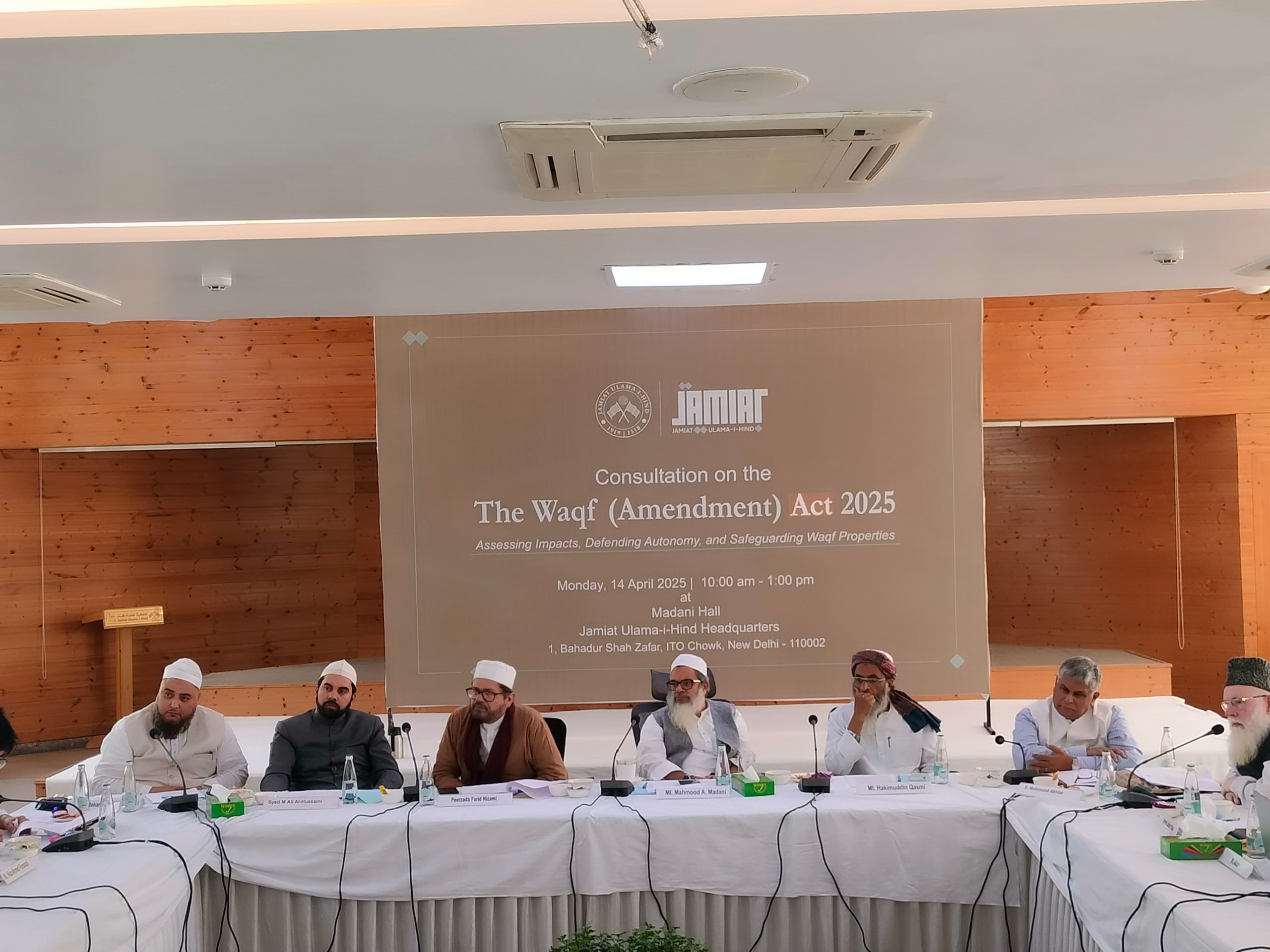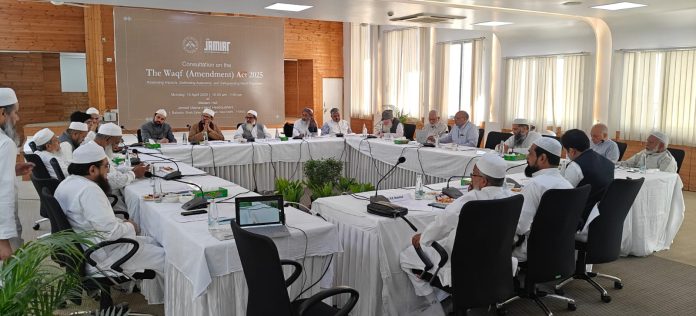 New Delhi: Prominent legal experts, Islamic scholars, intellectuals, and social activists on Tuesday raised serious concerns about the Waqf Act 2025, calling it detrimental to the future of Waqf properties in India. They emphasized that the Act grossly violates the constitutional guarantees provided to religious minorities and should be resisted at all levels.
New Delhi: Prominent legal experts, Islamic scholars, intellectuals, and social activists on Tuesday raised serious concerns about the Waqf Act 2025, calling it detrimental to the future of Waqf properties in India. They emphasized that the Act grossly violates the constitutional guarantees provided to religious minorities and should be resisted at all levels.Speaking at a high-level consultative meeting organized by Jamiat Ulama-i-Hind (M) at its headquarters, participants highlighted that the protection of Waqf is not only a legal matter but also a religious, moral, and social responsibility. Legal experts further warned that the new Act could undermine the Places of Worship Act, 1991, thereby weakening the existing legal safeguards.
In his inaugural address, Jamiat President Maulana Mahmood Madani emphasized that the organization has played a historic role in the protection of Waqf properties both before and after independence. He recalled how Jamiat’s recommendations were incorporated into the Shariat Application Act of 1937 and later into the Waqf Acts of 1954 and 1995. Criticizing the present government for ignoring the voices of religious and social institutions, he asserted that the proposed legislation violates the spirit and objectives of Waqf and must be opposed legally and publicly.
Former IRS officer and Waqf expert Syed Mahmood Akhtar compared the proposed law’s structure to that of the Delhi Development Authority, highlighting the absence of any reflection of Shariah principles. M. Iqbal A. Shaikh, a former Central Waqf Council member, warned that Sections 40 and 83 of the Act could strip Waqf Boards and properties of their legal standing.
Advocate Pirzada Farid Ahmed Nizami, Sajjada Nashin of Dargah Hazrat Nizamuddin Auliya, criticized the criteria in Section 3 requiring five years of practicing Islam, and Section 3D’s provision for delisting Waqf properties under ASI, terming them contrary to Islamic norms.
Afzal Muhammad Safavi Farooqi, Naib Sajjada Nashin of Dargah Safipur, highlighted the absence of clear guidelines for managing shrines and khanqahs and raised concerns about rural communities’ lack of awareness about Waqf laws, posing a serious risk.
Syed Muhammad Ali Hussaini, Sajjada Nashin of Dargah Gesu Daraz, Gulbarga Sharif, emphasized the urgent need for comprehensive documentation of Waqf properties. Advocate M. R. Shamshad, a senior Supreme Court lawyer, described the amendment as deceptive, stating that individual legal defense at the property level is essential.
Advocate Rauf Rahim stressed the importance of unity and collective efforts in opposing the Act and appreciated the growing awareness within the community.
Advocate Mohammad Tahir Hakim from Gujarat expressed concern over provisions that allow for the potential termination of Waqf status. Retired IFS officer M.J. Akbar warned that the Act promotes a trust-like model, undermining the traditional Waqf system.
To counter these challenges, Maulana Siddiqueullah Chowdhury, President of Jamiat Ulama West Bengal, proposed forming a legal assistance team with published contact details to help the public safeguard Waqf properties.
Mohammad Haroon, President of Jamiat Ulama Madhya Pradesh, suggested organizing awareness programs in 100 cities, while Hafiz Nadeem Siddiqui, President of Jamiat Ulama Maharashtra, recommended forming youth teams for property record verification at the block level.
Professor Nisar Ansari, General Secretary of Jamiat Ulama Gujarat, called for establishing state-level subcommittees to speed up documentation. Hafiz Peer Khaliq Sabir, General Secretary of Jamiat Ulama Telangana, lamented that only 23,000 acres remain out of over 50,000 acres of Waqf land in Telangana and Andhra Pradesh due to lack of awareness.
Maulana Arshad Mir, President of Jamiat Ulama Surat, urged the launch of a mass awareness campaign to protect Waqf properties. Educationist Saif Ali Naqvi suggested using YouTubers and digital platforms to counter misconceptions surrounding Waqf.
On this occasion, Maulana Niaz Ahmed Farooqui, Incharge of Jamiat’s Legal Affairs, presented a detailed legal analysis highlighting the major flaws in the draft law.




